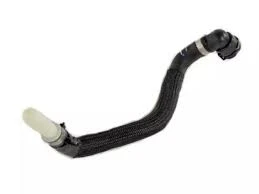Choosing the Right Gas Fuel Hose for Your Vehicle Needs
Nov . 17, 2024 12:27 Back to list
Choosing the Right Gas Fuel Hose for Your Vehicle Needs
Understanding Gas Fuel Hose Importance, Types, and Maintenance
Gas fuel hoses are essential components in the transportation and distribution of fuel in a variety of applications, from automotive to industrial environments. These hoses are specifically designed to handle various types of fuel, including gasoline, diesel, and natural gas, ensuring safe and efficient delivery from one point to another. Understanding the significance of gas fuel hoses, as well as their types and maintenance requirements, is crucial for anyone involved in mechanics, fueling stations, or vehicle maintenance.
Importance of Gas Fuel Hoses
The primary function of gas fuel hoses is to transport fuel from storage tanks to engines or appliances safely. Given the volatile nature of fuel, these hoses must be built to withstand high pressures and temperatures, as well as resistant to various chemical interactions that may occur with different fuel types. Any failure in a fuel hose can lead to fuel leaks, posing serious safety risks such as fires and environmental contamination. Therefore, selecting the right fuel hose is vital for preventing such dangerous situations.
Types of Gas Fuel Hoses
There are several types of gas fuel hoses, each designed for specific applications
1. Rubber Fuel Hoses These are commonly used in automotive applications. They are flexible, durable, and can withstand various fuel types. However, they may degrade faster when exposed to certain chemicals or prolonged sunlight.
2. Metal Braided Hoses Often chosen for high-pressure applications, these hoses offer excellent durability and resistance to external factors. The metal braiding provides additional protection against punctures and abrasions.
3. Nylon Fuel Hoses Lightweight and flexible, nylon hoses are commonly used in high-performance vehicles. They exhibit good resistance to fuel and chemicals but might require additional protection against UV rays.
gas fuel hose

4. PTFE (Teflon) Hoses Known for their exceptional resistance to chemicals and heat, PTFE hoses are suitable for extreme conditions. They are often used in industrial applications where high temperatures and pressure are common.
Maintenance of Gas Fuel Hoses
Regular maintenance of gas fuel hoses is crucial to ensure their longevity and performance. Here are some key maintenance tips
- Regular Inspection Frequently check for signs of wear, cracks, or leaks. Looking for discoloration or any external damage can help catch issues early.
- Proper Storage When not in use, fuel hoses should be stored in a cool, dry place away from sunlight or harsh chemicals, which can degrade the material over time.
- Correct Installation Ensure hoses are installed according to the manufacturer's instructions to prevent kinking or excessive bending, which can reduce their lifespan.
- Timely Replacement Even with proper maintenance, gas fuel hoses will eventually wear out. Following manufacturer guidelines for replacement intervals will help avoid potential failures.
In conclusion, gas fuel hoses play a critical role in the safe and efficient transportation of fuel. By understanding their types, importance, and maintenance needs, individuals and organizations can ensure safe operations and reduce the risk of accidents. Regular attention to these components contributes not only to safety but also to the overall efficiency of fuel-related systems.
